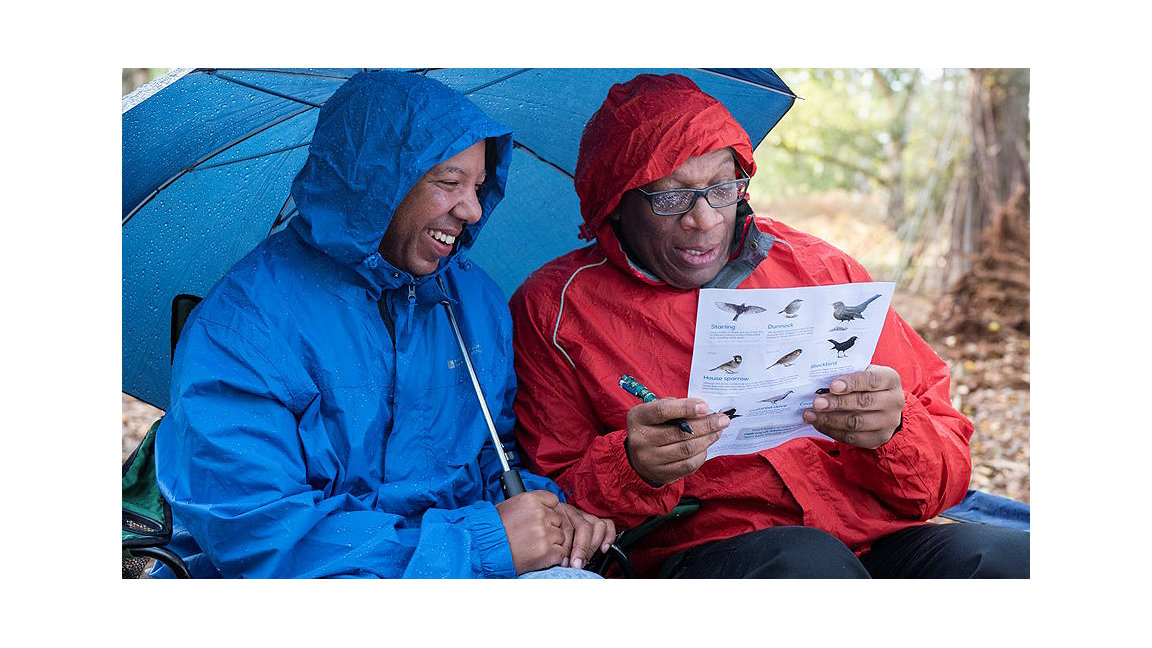
Nature is not only important in terms of wildlife and the planet – it is essential for our physical and mental well-being. This has long been acknowledged by indigenous communities around the world, and the UK has been coming to this realisation over the past 20 years as a wealth of evidence accumulates.
Spending time in nature has a wide range of benefits including – but not limited to – improving sleep, ameliorating physiological conditions such as anxiety and depression, lowering blood pressure and reducing stress. The necessity of nature for our well-being has been further proven by the COVID-19 lockdowns, which saw a steep increase in people heading outdoors to experience the benefits of nature.
An online YouGov survey commissioned by the RSPB found that 63% of 2,071 people surveyed said watching the birds and hearing their song had added to their enjoyment of life since the onset of COVID-19, with 51% believing that the pandemic has made them more aware of nature around them.
Meanwhile, Natural England's 2020 People and Nature Survey (PANS) looked into the public's interactions and relationships with green and blue spaces, and found that during the pandemic, 74% of adults have taken more time to notice and engage with nature, and 40% of adults have increased the amount of time they spend outside.
Anecdotally, we at the RSPB have seen a big increase in interest – our Notes on Nature newsletter readership grew by 123% during the past year, for instance. Online communities such as the Self Isolation Bird Club and the RSPB's #BreakfastBirdwatch created a space for people to connect over their love for nature from their own homes while in isolation. And more than 1m people took part in the RSPB's Big Garden Birdwatch in 2021 – double the number of participants from 2020.
The pandemic has also resulted in changes to how people visit greenspace and what they do there. As lockdown eased, there was a rush to the countryside, with widely reported negative impacts – parking issues, fires, damage to habitats, wildlife disturbed.
However, we should look positively at what happened. For many, this may have been their first visit to the countryside, and demonstrates how vital access is. Providing help and guidance for these new audiences is essential. One response has been to update the Countryside Code to help people enjoy the countryside in a safe and respectful way.
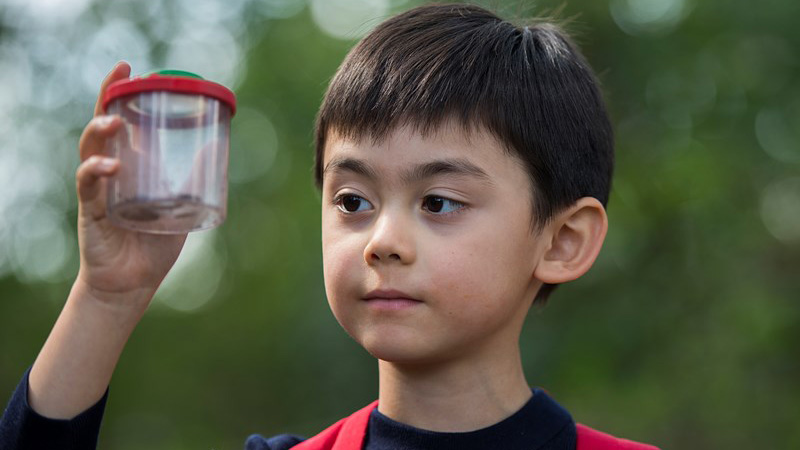
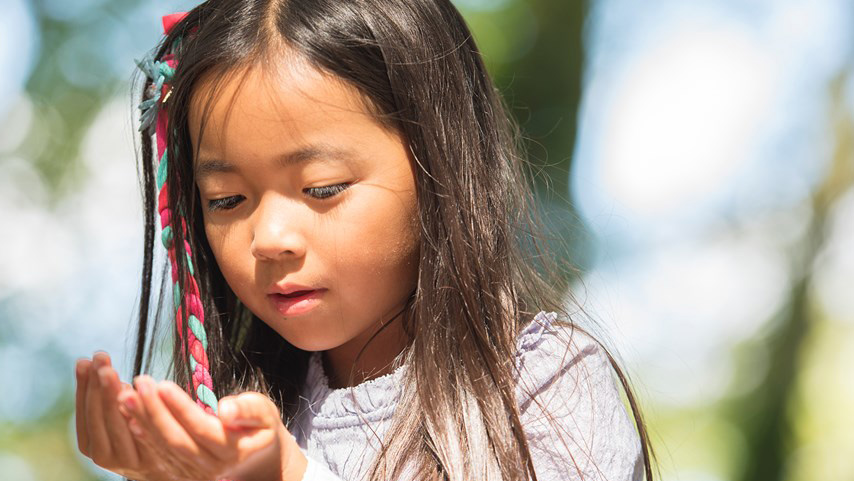
The Countryside Code has existed for over 70 years but had become something only a few remembered or thought about. With new visitors to the countryside it became imperative to make sure everyone from all ages and backgrounds could have a safe and enjoyable visit – not just those who have traditionally lived, worked and visited there.
This update – the first in over a decade – emphasises how to create a welcoming environment, explaining the reasoning for rules – not just rules for the sake of them, for example why cleaning up dog poo is a safety issue for livestock – and how to respect and protect our natural world. Crucially it now covers all green spaces, waterways, the coast and even parks in towns and cities, so that everyone can enjoy access to nature-rich spaces.
Given the suspected long-term mental and physical impacts of lockdowns, nature will continue to be imperative to our resilience and well-being. But as important as natural spaces are, access is not equal.
Equal access
Nature may feel as though it is readily accessible to all, but the data shows that access is subject to considerable socio-economic inequality. Public Health England's 2020 review found that the groups who most infrequently access green spaces were people who were older; those in poor health; people of lower socioeconomic status; those with a physical disability; ethnic minorities; and people living in deprived areas, among others.
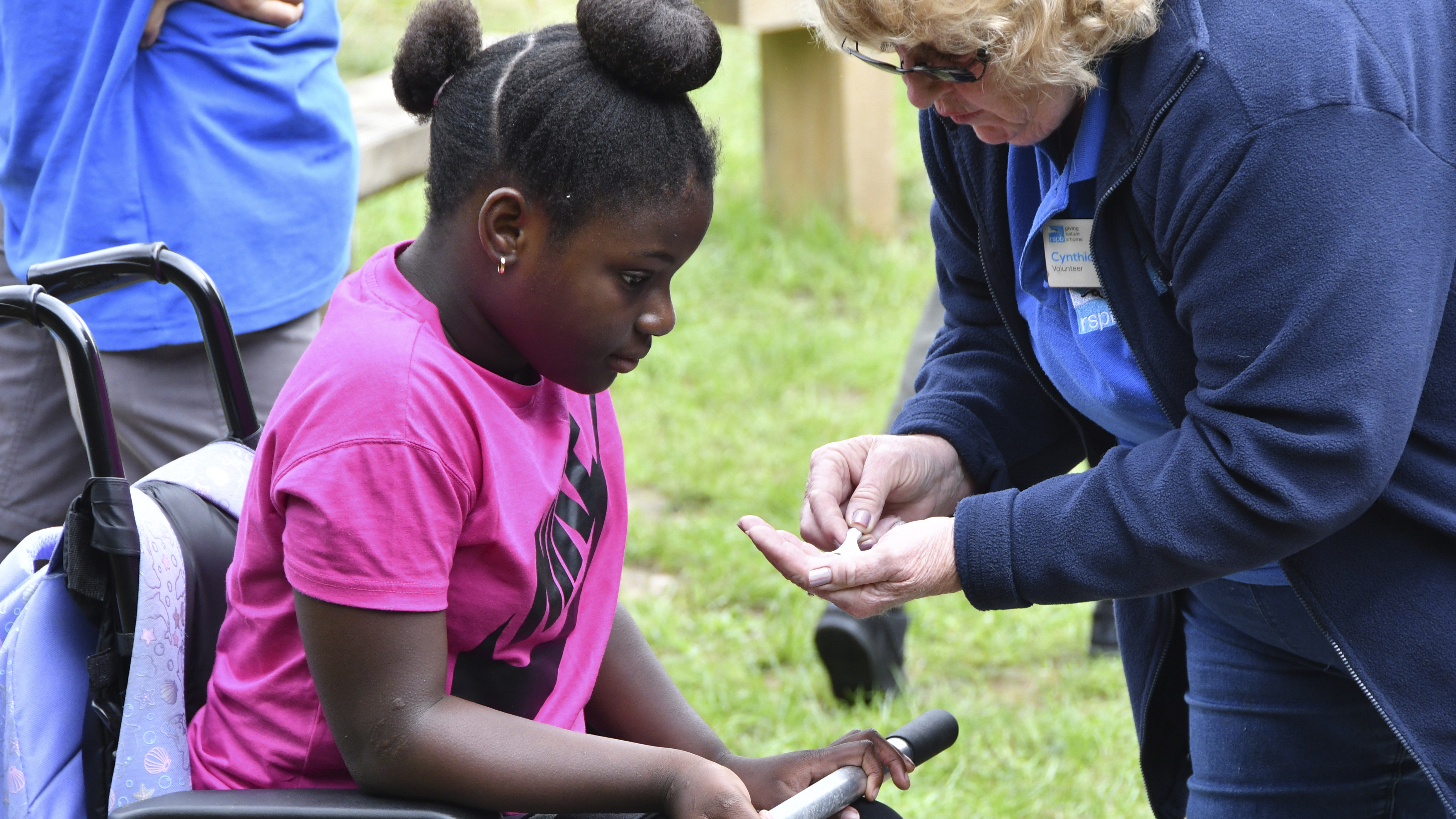
- 47% of adults with a long-term illness or condition had been in nature in the past 14 days, compared to 62% of people who didn't have a long-term illness or condition; older adults were also less likely to spend time in natural spaces
- 73% of children from lower-income households had spent less time outdoors since the beginning of the pandemic, compared to 57% in higher-income households
- 51% of ethnic minority adults had spent time in nature recently, compared with 60% of white British adults; children from ethnic minority backgrounds are also spending less time outside than white children
- black people in England are nearly four times as likely as white people to have no outdoor space at home
- households with the lowest incomes are the least likely to have a garden, the most likely to have no outdoor space at all, and the least likely to live close to publicly accessible natural green space.
- the COVID-19 mortality rate in the most deprived areas in England has been more than double that in the least deprived areas
- black males are 4.2 times more likely to die from a COVID-19-related death and black females are 4.3 times more likely than white males and females respectively.
At RSPB we are working on these health considerations through social and nature prescribing. For example, in Scotland we work with the NHS on Nature Prescriptions where GPs can prescribe nature as part of patients' treatment. Individuals benefit because connecting with nature can improve physical and mental wellbeing, and nature benefits because connecting with nature often inspires people to want to protect it.
The focus is on helping people connect with nature in ways that are personal, emotional and meaningful. It's less about knowing and more about noticing and engaging with the natural world as it changes and unfolds. Connecting in this way can cultivate a sense of curiosity, joy and compassion that is positive for our wellbeing and is also good for nature.
While there is evidence that COVID-19 has exacerbated these health inequalities, it has also presented an opportunity to build on increasing awareness of nature and its benefits to empower everyone to access green spaces. It is the responsibility of everyone to ensure that access is equitable.
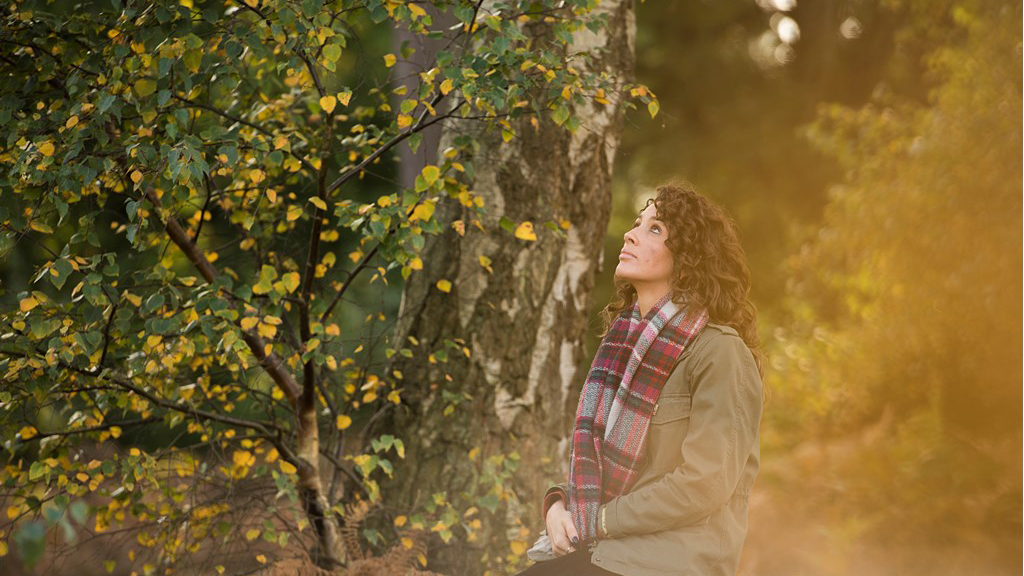
Economic benefits
Nature is not only essential for our physical and mental health but also has vast economic benefits. The RSPB's Recovering Together 2 report summarised the social, environmental, and economic benefits of investing in nature, which include the following.
Action for equality
By prioritising equitable access to nature, we can save lives and take an important step in dealing with socio-economic inequality.
Internally, the RSPB is currently reviewing the scope of its equality, diversity and inclusivity work, and has appointed a diverse England Advisory Committee to increase inclusivity and improve access to nature for all.
Practical barriers to outdoor access identified in PANS include lack of facilities or information, and the RSPB is determined to ensure its reserves provide accessible facilities for a range of requirements. For example, it wants to ensure hides are wheelchair-accessible, and that reserves' webpages provide up-to-date, accessible information.
Making sure that visitors to our reserves feel welcome and safe is something the RSPB constantly strives to achieve. The death of Sarah Everard has rightly provoked a debate about the safety of women, and we are reflecting on what else we can do to make everyone feel safe in the countryside.
One of our core aims is to build a diverse, people-powered movement to save nature, and community empowerment is a key aspect of this. We are looking into how we can support communities and groups such as Flock Together a birdwatching collective for people of colour, and Black2Nature, a visible minority ethnic-led organisation set up by Birdgirl Mya-Rose Craig.
Both organisations are working on dealing with the inequality of access for people of colour, through facilitated access to green spaces. Black2Nature runs nature camps, organises race equality in nature conferences and campaigns to make nature conservation and environmental sector ethnically diverse.
Looking ahead, we are calling on the government to prioritise the nature and climate emergencies by putting these issues at the heart of development and the national economy. Ahead of this year's mayoral elections, we are urging the England metro mayors and candidates to make investing in nature a priority through the RSPB's Revive Our World campaign.
The future must be fair and green, empowering everyone to access, and act for, nature. We must all grasp the opportunity to improve our society's economy, improve health and well-being and reduce socio-economic equalities by valuing and prioritising nature. The opportunity is there, and we must not miss our chance.
Emma Marsh is director of RSPB England
Contact Emma: Email
Related competencies include: Access and rights over land, Management of the natural environment and landscape
